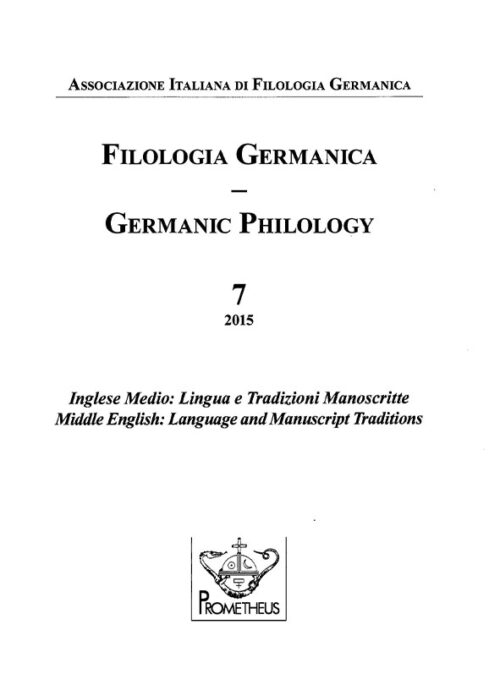The as-copular construction in Middle English
DOI:
https://doi.org/10.14672/fg.v7i.2586Abstract
This paper aims to investigate the status of an important but neglected subordinator, namely as, in Middle English. In Present-Day English, as is usually treated as a synonym of while and when, although important differences exist between them. In particular, as is not usually found in copular constructions (e.g. as you are here for while you are here). By contrast, the corpus evidence gathered for this study shows that Middle English as, including its variants, exhibits more flexibility in that it is found more frequently than its contemporary counterpart in copular constructions with prepositional phrases (e.g. as he was in the water for while he was in the water) and even adjectival phrases (e.g. as she was busy for while she was busy), especially in close proximity with a temporal noun (e.g. on a night as he was in his prayers). It is argued that as underwent a process of expansion from an essentially Old English correlative meaning which, however, came to halt because of a variety of reasons, such as the disappearance of the variant with a temporal noun and the replacement of the prepositional progressive construction with a truly progressive construction (e.g. as he was in waiting with as he was waiting).
Pubblicato
Fascicolo
Sezione
Licenza

Questo lavoro è fornito con la licenza Creative Commons Attribuzione - Condividi allo stesso modo 4.0.
CC-BY-SA



